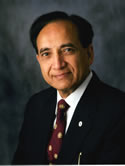Outcome of craniofacial resection in patients 70 years of age and older Journal Article
| Authors: | Ganly, I.; Gross, N. D.; Patel, S. G.; Bilsky, M. H.; Shah, J. P.; Kraus, D. H. |
| Article Title: | Outcome of craniofacial resection in patients 70 years of age and older |
| Abstract: | Background. Craniofacial resection (CFR) for patients over 70 years of age is uncommon. This study examines a cohort of 36 patients who had CFR at a single institution with the aim of reporting mortality, complications, and outcome. Methods. Thirty-six patients 70 years of age and older were identified from a prospective database of 234 patients who had CFR at a single institution. The median age was 72 years (range, 70-87). Seventeen (47%) patients had had prior single-modality or combined treatment, which included surgery in 14 (40%), radiation in 13 (36%), and chemotherapy in 2 (6%). Thirty-five patients had a malignant tumor and 1 patient a benign tumor; 15 (42%) had high-grade, 17 (47%) intermediate-grade, and 4 (11%) low-grade pathology. The margins of resection were close or microscopically positive in 18 (50%). Adjuvant radiotherapy was given in 15 (42%) and chemotherapy in 1 (3%). Complications were classified into overall, local, central nervous system (CNS), systemic, and orbital. Overall survival (OS) and disease-specific survival (DSS) were determined using the Kaplan-Meier method. Outcomes were compared with patients less than 70 years of age. Results. Postoperative mortality occurred in 6 (17%) patients and postoperative complications occurred in 23 (64%) patients. Local wound complications occurred in 11 (30%), CNS in 12 (33%), systemic in 6 (17%), and orbital in 1 (3%). Postoperative mortality and complications were significantly higher in patients 70 years of age and older compared with patients less than 70 years of age (17% versus 1.5%, p = .0005; 64% versus 36%, p = .003, respectively). With a median follow-up of 27 months (range, 1-237), the 3 year OS and DSS were significantly poorer than patients less than 70 years of age (OS: 53% versus 69%, p = .0004; DSS: 61% versus 70%, p = .01) due to increased medical comorbidity (53% versus 24%, p = .001) and poorer histology (high-, intermediate-, low-grade histology: 42%, 47%, 11% versus 26%, 47%, 27%, p = .05, respectively) in patients over 70 years of age. Conclusion. CFR in patients 70 years of age and older is associated with increased mortality, increased incidence of complications, and a poorer overall and disease-specific 3-year survival, compared with patients less than 70 years of age. The survival was likely due to increased medical comorbidity and adverse histology. These factors must be taken into account when considering an elderly patient for craniofacial resection. © 2006 Wiley Periodicals, Inc. |
| Keywords: | clinical article; treatment outcome; aged; aged, 80 and over; survival analysis; cancer surgery; overall survival; histopathology; surgical flaps; multimodality cancer therapy; cancer radiotherapy; follow up; follow-up studies; cancer grading; prospective study; prospective studies; melanoma; neoplasm recurrence, local; age factors; postoperative complication; postoperative complications; prognostic factors; comorbidity; carcinoma; outcome; surgical mortality; malignant neoplastic disease; salivary gland neoplasms; age distribution; benign tumor; skull base neoplasms; kaplan meier method; elderly care; elderly; craniofacial surgery; wound complication; cranial fossa, anterior; esthesioneuroblastoma, olfactory; nose neoplasms; central nervous system disease; craniofacial resection; databases; cranial fossa, middle; orbit disease |
| Journal Title: | Head & Neck |
| Volume: | 29 |
| Issue: | 2 |
| ISSN: | 1043-3074 |
| Publisher: | John Wiley & Sons, Inc. |
| Date Published: | 2007-02-01 |
| Start Page: | 89 |
| End Page: | 94 |
| Language: | English |
| DOI: | 10.1002/hed.20487 |
| PUBMED: | 16983689 |
| PROVIDER: | scopus |
| DOI/URL: | |
| Notes: | --- - "Cited By (since 1996): 8" - "Export Date: 17 November 2011" - "CODEN: HEANE" - "Source: Scopus" |
Altmetric
Citation Impact
BMJ Impact Analytics
Related MSK Work








